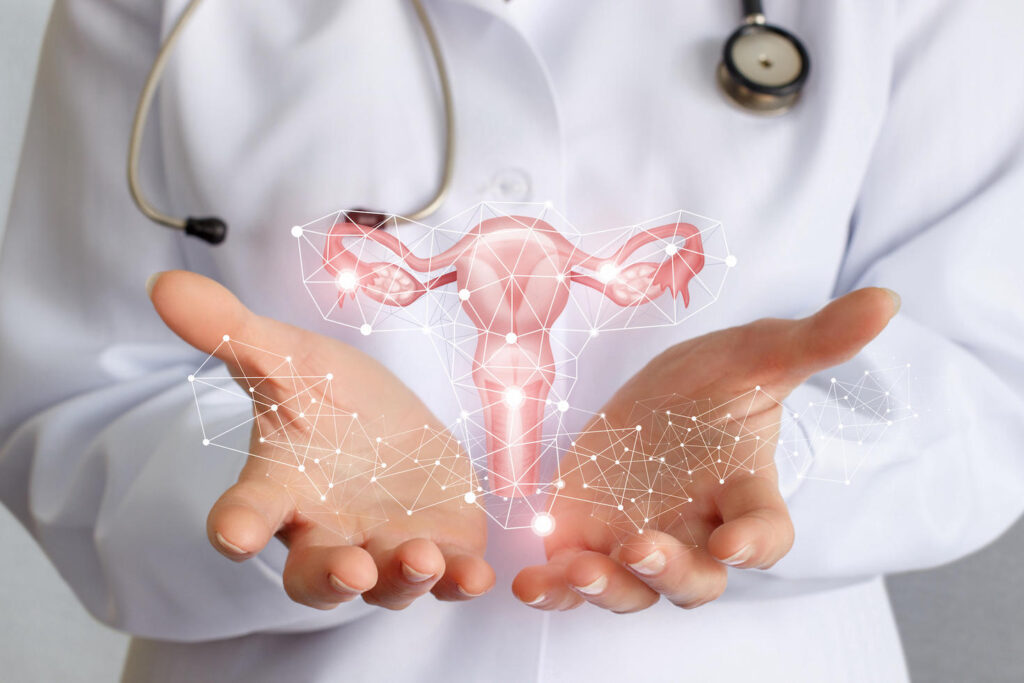Gynaecology & Obstetrics
Gynaecology, or gynecology as it’s also spelled, is the branch of medicine that focuses on the female reproductive system, including the uterus, ovaries, fallopian tubes, and external genitalia. It often goes hand-in-hand with obstetrics, which specializes in pregnancy and childbirth, forming the combined field of obstetrics and gynaecology
What is a gynecologist?
A gynecologist is a doctor who cares for the health of the female reproductive system, like your breasts, vagina and uterus. They can provide primary and preventative care, too. Some gynecologists are also obstetricians (Ob/Gyns). Obstetricians specialize in pregnancy and childbirth.
The female reproductive system creates hormones and is responsible for:
- Fertility and pregnancy
- Menstruation (periods)
- Sexual activity
Gynecologists care for your reproductive health from puberty through menopause. They’re by your side throughout many parts of your life.


What do they do?
A gynecologist deals with all aspects of sexual health, like preventive care and physical exams. They can diagnose and treat issues with female reproductive organs. Some of the services gynecologists provide include:
- Assessing your risk for gynecological conditions and cancers
- Guidance on family planning (birth control and pregnancy planning)
- Diagnosing conditions related to your reproductive organs, breasts and sex hormones
- Managing gynecological conditions with medication and/or surgery
- Physical exams like, breast, pelvic and external genital exams
- Preventive care, like Pap tests, cancer screenings and vaccines
- Testing for sexually transmitted infections (STIs)
What conditions does a Gynecologist Treat?
Gynecologists diagnose and treat conditions that affect your reproductive system. Some of these include:
- Cancer of your uterus, ovaries or cervix
- Endometriosis
- Issues related to your menstrual cycle or menopause
- Ovarian cysts
- Pelvic inflammatory disease (PID)
- Polycystic ovary syndrome (PCOS)
- Uterine fibroids
- STIs
They treat any lumps, pimples or boils in your vagina or on your vulva (external genitalia) as well.
A gynecologist may also treat certain conditions affecting your rectum, bladder and urethra. But they may refer you to a urologist or colorectal surgeon depending on your symptoms.
When should you go to a gynecologist?
Visiting a gynecologist should be part of your routine health if you’re sexually active or between 13 and 15 years old. Most healthcare providers recommend an annual (once a year) check-up with your gynecologist.
You should also see a gynecologist when you have:
- Breast changes, like a lump or nipple discharge
- Difficulty getting pregnant (infertility)
- Growths, sores or lumps in your pubic area
- Irregular vaginal bleeding or discharge
- Known or suspected exposure to a sexually transmitted infection
- Pain during sex or sexual dysfunction
- Painful periods
- Pelvic floor dysfunction
- Pelvic pain
- Signs of premature and early menopause
- Vaginal itching or a change in vaginal odor
You should also see your gynecologist if you’re:
- Thinking of becoming pregnant
- Wanting help navigating menopause
- Wanting to start or stop birth control or change your current method

